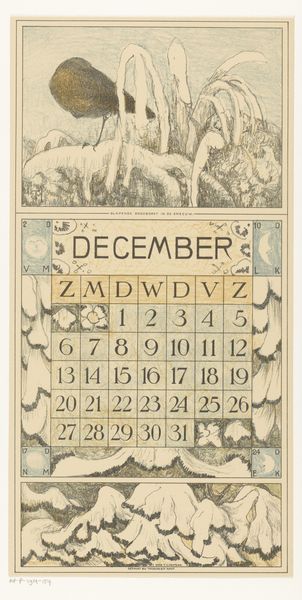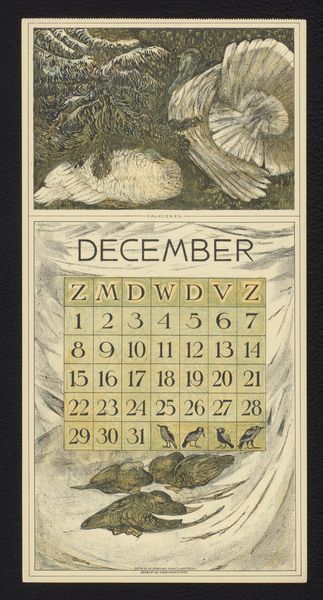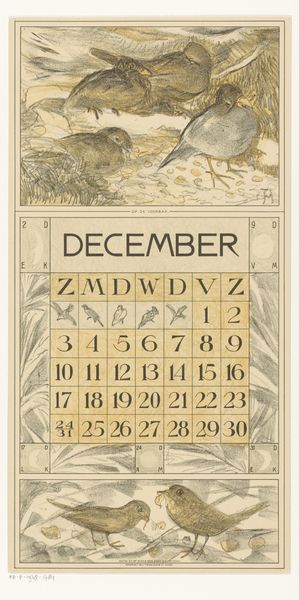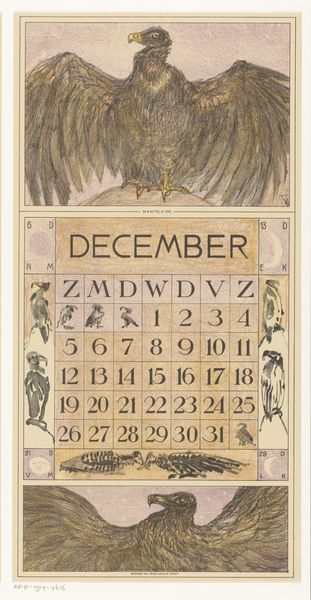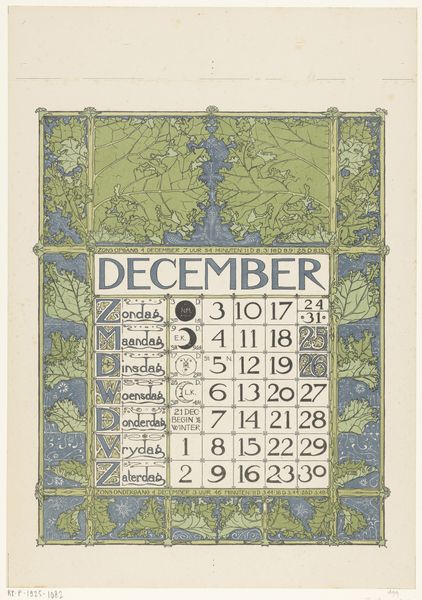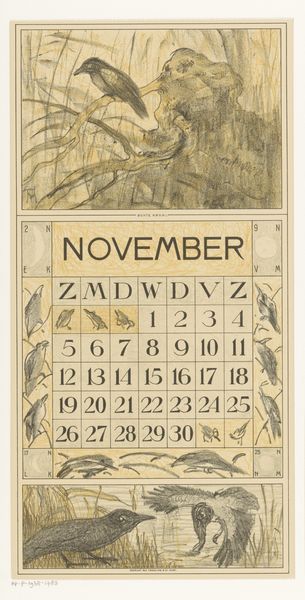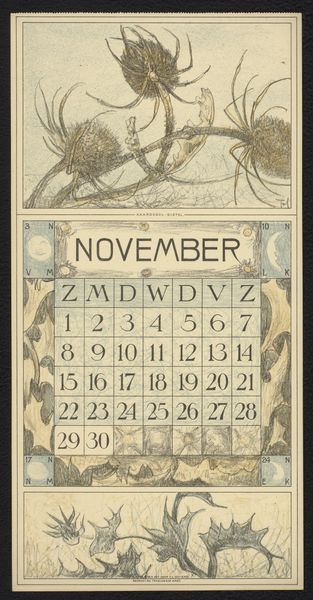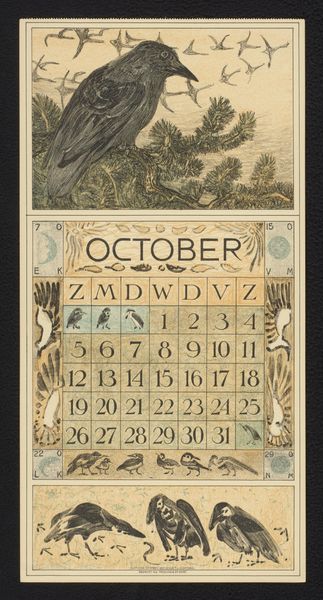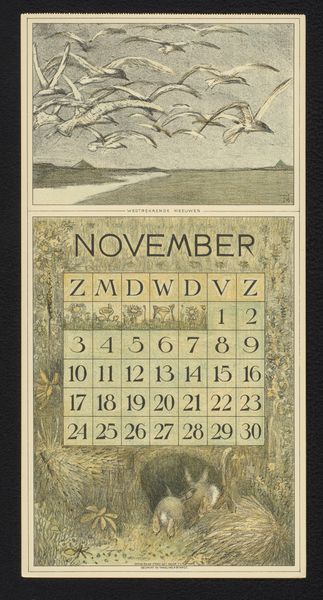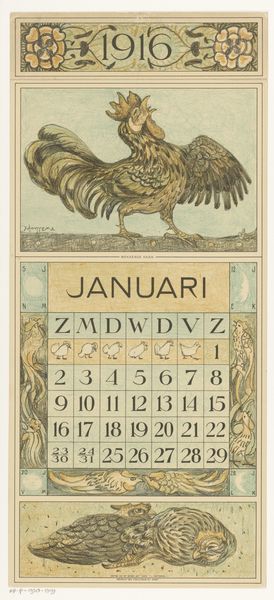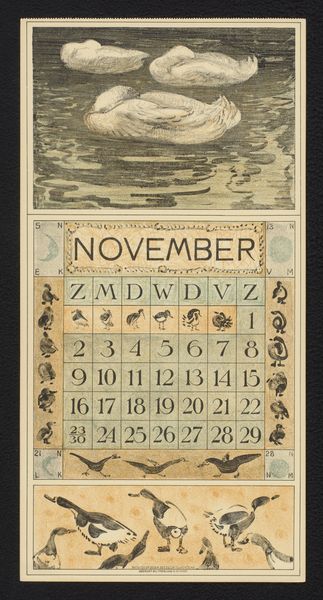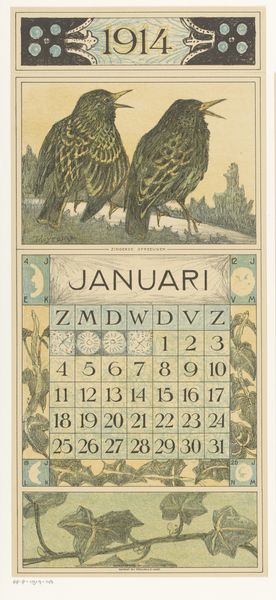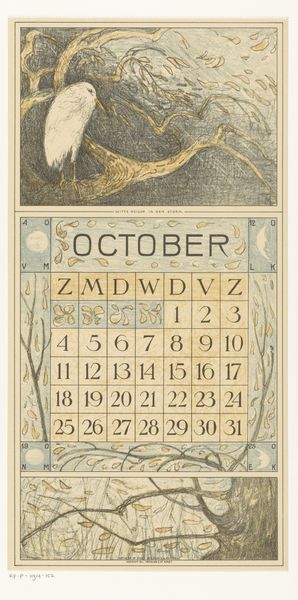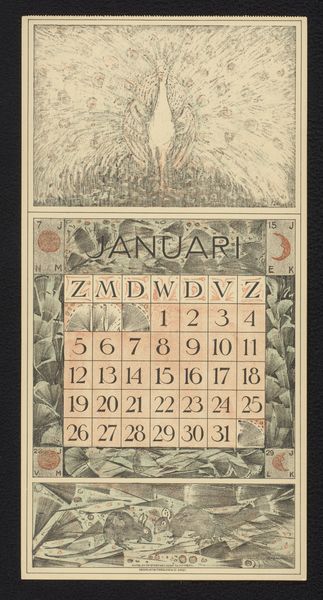
drawing, mixed-media, print, paper
#
portrait
#
drawing
#
natural stone pattern
#
aged paper
#
mixed-media
#
art-nouveau
# print
#
man-made pattern
#
paper
#
subtle pattern
#
brown and beige
#
vertical pattern
#
neutral brown palette
#
symbolism
#
pattern repetition
#
layered pattern
#
nature
#
columned text
Dimensions: height 418 mm, width 212 mm
Copyright: Rijks Museum: Open Domain
Theo van Hoytema created this calendar page for December 1913 with lithographic ink on paper. The lithographic process, requiring a smooth stone and specialized inks, allows for fine lines and subtle gradations of tone, evident in the detailed rendering of the owl's feathers and the surrounding foliage. Van Hoytema would have drawn the image in reverse onto the lithographic stone or plate. The surface would then have been chemically treated so that the image would accept ink, while the non-image areas would repel it. This process, which relies on the repulsion of oil and water, allowed for multiple impressions to be made, essentially democratizing the image. The choice of lithography, a relatively accessible medium, suggests an interest in reaching a broader audience beyond the traditional art world. The calendar format itself speaks to the everyday, and the imagery—owls, candles, and seasonal motifs—creates a sense of folksy charm, softening the edge between art and the routines of daily life. The calendar is as much a product of skilled labor as it is a work of art.
Comments
No comments
Be the first to comment and join the conversation on the ultimate creative platform.
